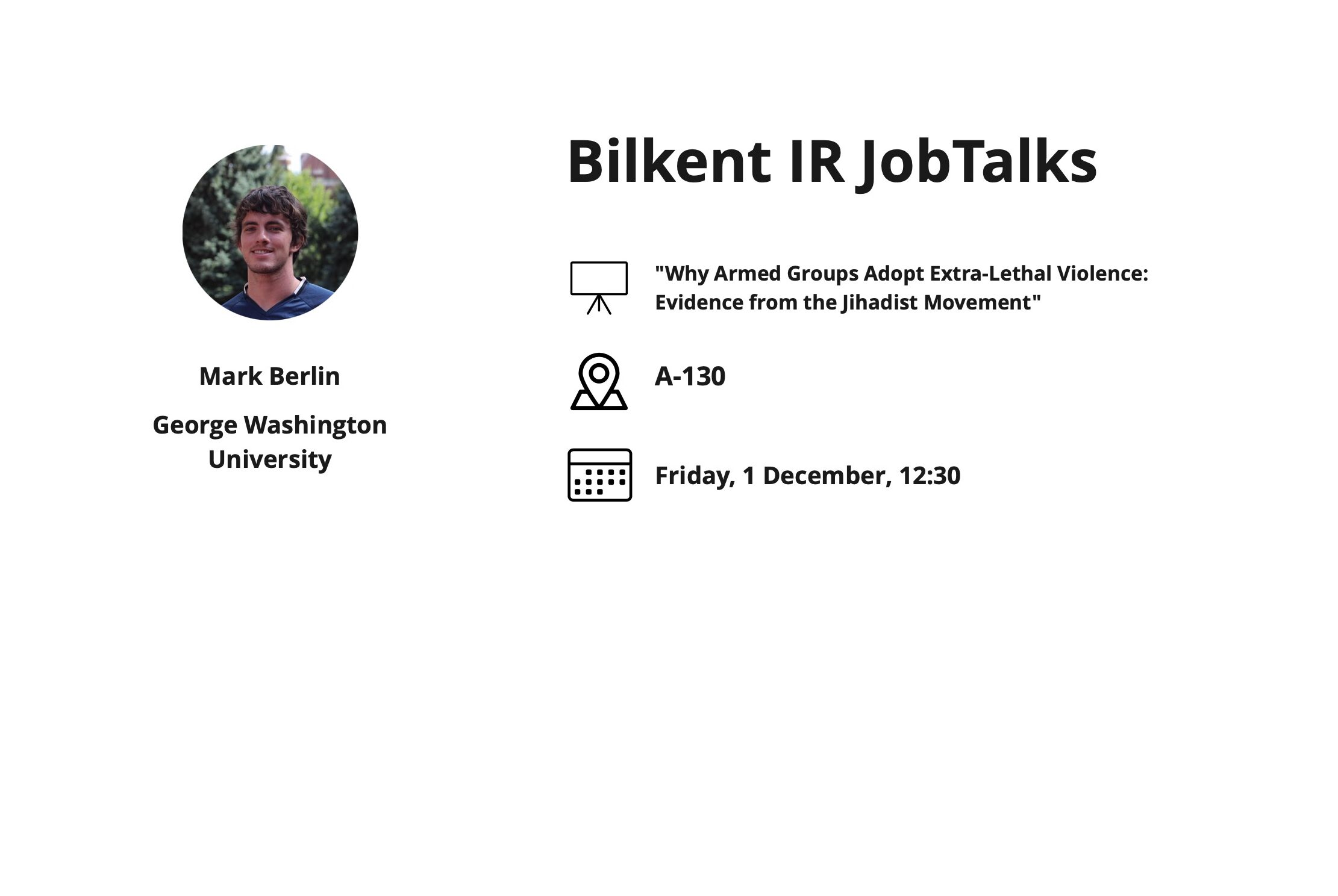Mark Berlin
George Washington University
“Why Armed Groups Adopt Extra-Lethal Violence: Evidence from the Jihadist Movement”
Date & Time: December 1, 12:30
A-130
Abstract: Militant organizations behead, crucify, and maim civilians in conflicts around the world. Existing research argues that armed groups use such violence to attain publicity, deter disloyalty, or outbid rivals. However, current scholarship examining extra-lethal violence often treats armed groups as unitary actors and is limited to a small number of countries, the actions of one specific organization, or particular violent events. Building on existing research, I focus on the timing of several dozen armed groups’ adoption of extra-lethal violence across multiple regions, exploring the logic behind why and when militants first utilize beheadings. Looking within organizations, I argue that new leaders have heightened incentives to adopt extra-lethal violence to signal their resolve and secure internal support. To examine this argument, I analyze Arabic language primary sources and novel data on leadership dynamics and the use of beheadings among 154 jihadist organizations from 2000 to 2019. In addition to delineating patterns in jihadist beheading attacks over recent decades, I process trace temporal variation in the behavior of organizations operating in Algeria, Egypt, Uzbekistan, and Yemen. This paper contributes to theory-building efforts surrounding militant leaders, extra-lethal violence, and tactical innovation.
Bio: Mark Berlin is a Ph.D. Candidate in Political Science at George Washington University and a Fellow at the University of York’s Centre for the Comparative Study of Civil War. His dissertation and book project, Pledging Allegiance to al-Qaeda and the Islamic State: The Causes and Consequences of Rhetorical Cooperation, analyzes questions surrounding armed group cooperation, patterns of violence, and militant discourse. Prior to GWU, he attained a Master of Arts in Arab Studies from Georgetown University.
GE 250 points.

